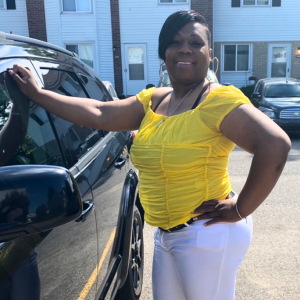Creating Tangible Results for Students and Teachers
Stacey Sharp is a restorative practices trainer and coach working with students, teachers, and families to reduce harm. Stacey spent several years in a K-12 education setting as a Behavior Interventionist and Family Liaison, integrating restorative practices into her work and healing relationships. After completing restorative practices training, she went on to continue her education at the IIRP Graduate School where she received her Graduate Certificate in Restorative Practices and opened her own coaching practice.
Q: What brought you to the IIRP?
A: A former superintendent introduced restorative practices to our school district, and she selected me as one of the people to be trained in the field. Once that journey began, I was hooked. I decided to continue learning, which ultimately led to receiving a graduate certificate in Restorative Practices and my becoming a Restorative Practices trainer.
In addition to the philosophy, I embraced restorative practices so effortlessly because I had a community (other practitioners and the faculty) of people who made me feel very welcome and are as dedicated as I am to this work.
Q: Please tell us about your restorative work now and what makes you passionate about it.
A: Temporarily, I've been working in a middle school as a behavior interventionist. I have weekly circles with students about managing their emotions and repairing harm. I also use it to work with teachers and students who struggle to get along and have unsuccessfully tried other ways to simply coexist.
My passion for restorative practices comes from the results. I get to see people who have not gotten along for years (their words, not mine) or people who have been hard to deal with change before my eyes. Reading and learning about it is one thing, but actually witnessing and experiencing these breakthroughs in real time is powerful.
Q: What would you like to see in this restorative work in the future?
A: I would like to see many things. First, I believe it should be built into the curriculum of every K-12 school. My philosophy aligns with Albert Einstein's in saying, "We cannot solve problems with the kind of thinking we employed when we came up with them."
It's clear, from what statistics show us and from what we are witnessing in the world, that what we are doing is not working. Real change begins with a mere willingness to change or at least hear another's side. Restorative practices provides the framework to do it.

